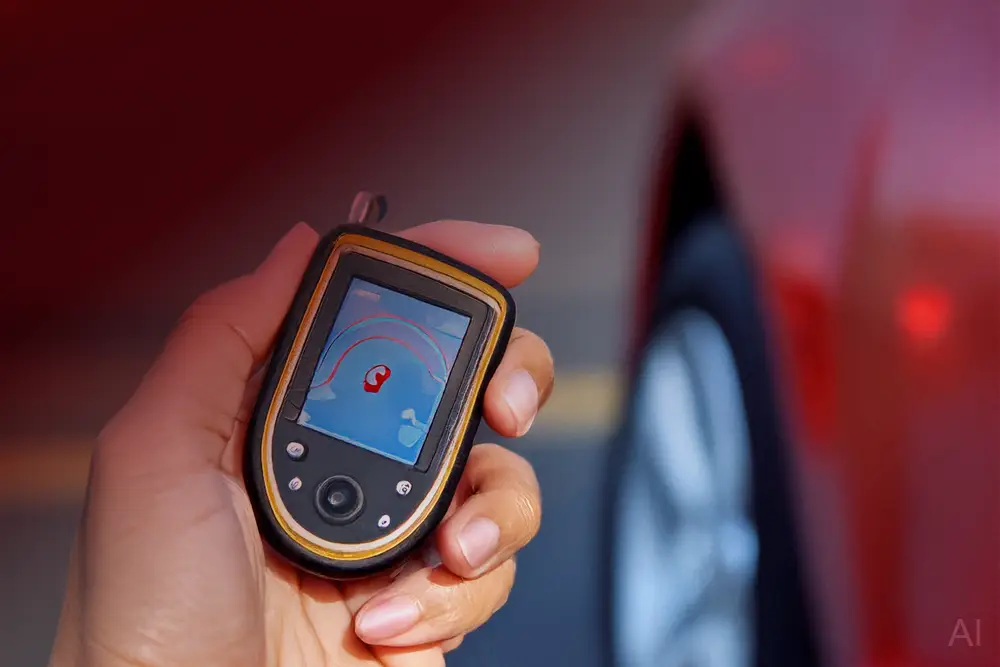 Motortopia Staff
.
June 15, 2025
.
News
Motortopia Staff
.
June 15, 2025
.
News

Car tracking without the owner’s knowledge is technically possible using various modern technologies. The following paragraphs explain how it is done, the legal risks, and the ethical concerns involved.
Car tracking is the process of monitoring a car’s real-time location. It uses either hardware devices or software to transmit or infer location data.
GPS trackers are hardware devices installed in the car. They transmit highly accurate location data to a receiver or application.
Mobile phone tracking uses apps installed on a smartphone. It infers the car’s movement based on the phone’s location data.
To track a car without the owner knowing, individuals often use
Magnetic GPS trackers are small devices placed under the car or inside the trunk. They:
OBD-II trackers plug into the car’s diagnostic port. They:
Certain apps can track a smartphone and infer car movements. They:
In most countries, tracking a car without the owner’s consent is illegal. Legal consequences depend on local laws and enforcement practices.
United States GPS tracking laws prohibit tracking a car without the owner’s consent. Federal Law requires law enforcement to obtain a court warrant.
Unauthorized tracking in the United States can result in criminal charges. It can also lead to civil lawsuits for privacy violations.
United Kingdom law restricts tracking without consent under the Regulation of Investigatory Powers Act (RIPA). Only certain public authorities have legal permission to conduct tracking.
Private individuals or companies in the United Kingdom cannot legally track a car without consent. Violating this can result in legal action and penalties.
European Union law protects location data under the General Data Protection Regulation (GDPR). Tracking without consent is a violation of these privacy rights.
Unauthorized tracking in the European Union can lead to regulatory fines. It can also trigger legal claims from affected individuals.
Covert car tracking is performed by different actors for various reasons. Each use case carries distinct legal and ethical implications.
Private investigators use covert tracking in cases of suspected infidelity or fraud. This is legal only if consent is given or a court has authorized the tracking.
Employers use fleet tracking to monitor company-owned vehicles. Tracking is legal if employees are informed, but undisclosed tracking of personal vehicles is illegal.
Stalkers or abusers use covert tracking for criminal purposes. This type of tracking leads to serious legal penalties and criminal charges.
Family members, such as parents, sometimes track their children’s cars. This is legal if they own the car but illegal if tracking an adult in control of the vehicle.
Detecting unauthorized car tracking requires vigilance. Look for the following signs:
Preventing unauthorized car tracking requires proactive steps:
Physically inspect your car every week. Familiarity with your vehicle makes it easier to spot foreign objects.
Have a specialist sweep your car periodically, especially if you suspect surveillance.
Install a lock on the OBD-II port to prevent unauthorized devices.
Use trusted apps and check app permissions regularly.
Tracking is legal in specific cases:
In all cases, transparency and consent are required to stay within the law.
Unauthorized tracking increases risks of:
Violating privacy laws can lead to fines, jail time, and civil damages.
Secretly tracking friends, family, or partners can destroy trust and lead to legal actions.
Employers caught tracking employees without consent face lawsuits and regulatory penalties.
Tracking a car without the owner knowing is an ethical violation. Key concerns include:
Tracking a car without the owner knowing is technically possible using modern devices and software. However, in most countries, such tracking without consent is illegal and can lead to serious legal and ethical consequences.
To avoid unauthorized tracking, individuals must stay vigilant through regular inspections and professional sweeps. Legal car tracking must always involve transparency and consent to remain compliant with privacy laws.
Share Link